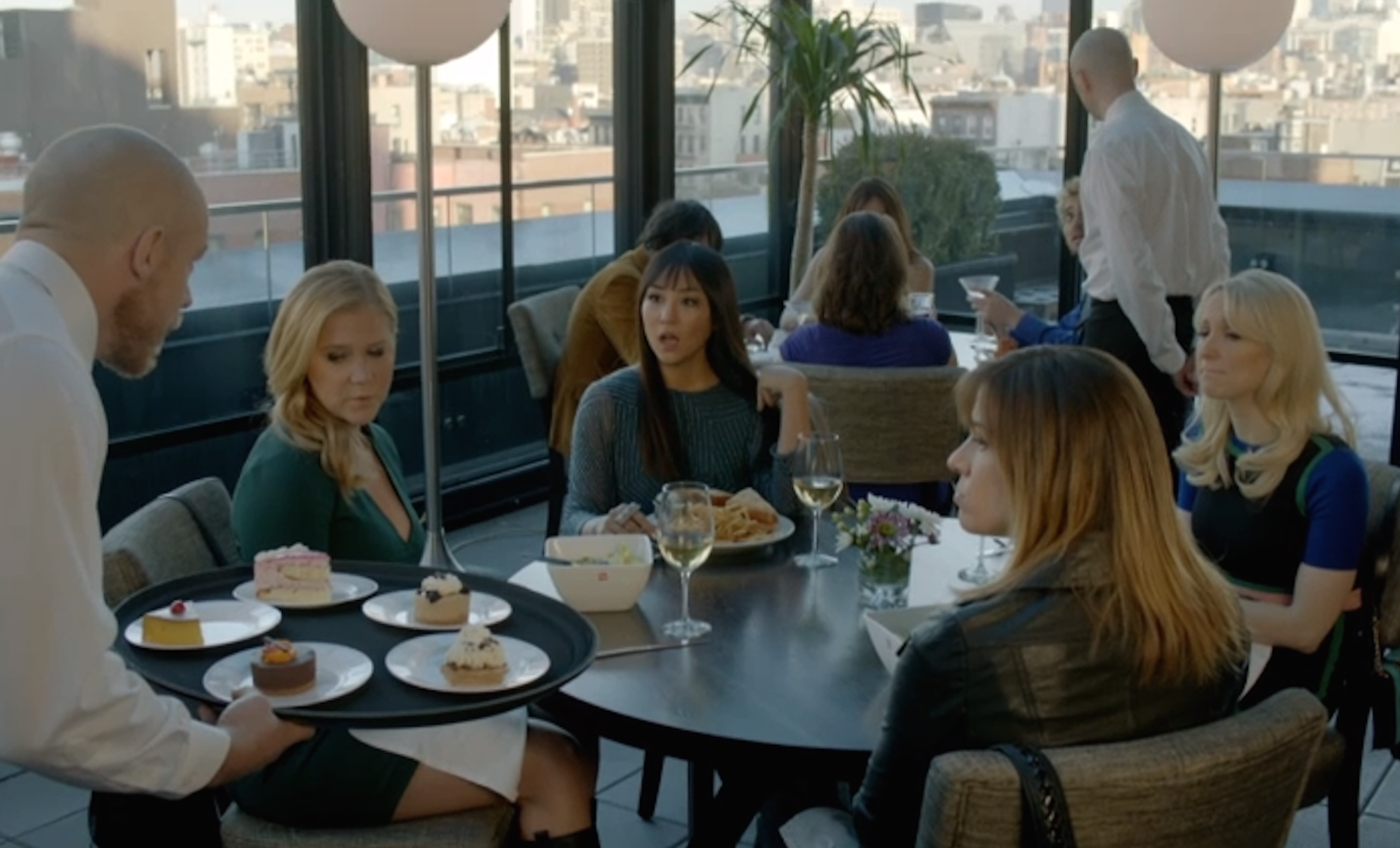The Internet is Just Another Tool To Police Women’s Food Habits.
by Emma Winsor Wood
The new Instagram account, You Did Not Eat That, has invigorated a very tired topic: women and food. The account’s anonymous creator reposts photos of model-skinny women, mostly fashion bloggers, posing near caloric-dense foods, like donuts, cupcakes and hamburgers, with the implication that these delicious treats will be discarded shortly after being photographed. The site has attracted praise, mostly for bringing attention to the unrealistic fantasy of the effortlessly skinny woman, as well as criticism, for providing yet another outlet for a patriarchal society to scrutinize and police women’s bodies. The account’s creator said in an interview with The Cut that she hopes to “lift the curtain here in Oz” by encouraging women not to lie about how they stay thin.
I must confess that after reading the interview and clicking through a few of the wittily-captioned photos, I laughed and, without thinking too hard about it, Tweeted the link. But the site stayed in the back of my mind and, as it gained attention in various media outlets, I felt compelled to reexamine my initial reaction: Why had I found it funny? The truth is, except in cases of absurd and unrealistic consumption (such as this photo of a blogger surrounded by mini-Magnum bars in bed), I didn’t find it funny. I found it depressing–a reminder that most women in the fashion and entertainment industries still subscribe to Kate Moss’s infamous dictum, “Nothing tastes as good as skinny feels.” I had not liked the site because it made me laugh, bur rather because it made me feel good about myself–at the expense of the fashion bloggers. It made me feel superior. In that way, looking at the photos reminded me of a night I had stayed up late, as a freshman in high school, formulating elaborate fat jokes with friends. It reminded me of being mean.
Scrolling through the comments reveals that the photos elicited a similar mean-spirited humor in other viewers: bulimia jokes (e.g. “He puked right after the shot”) permeate the comment sections like a bad smell. Other photos have impassioned appeals, mostly from women who appear to be eating disorder survivors, to get rid of the account (many of which, by the time of this printing, seem to have been deleted). Are the standards of the beauty industry cruel and unusual? Yes. Is it bizarre and hypocritical to use food as a “lifestyle” prop in photos? Perhaps. Is You Did Not Eat That actually highlighting a problem in a way that might spark change? Decidedly not.
The photos do, however, capture an interesting shift in how women relate to food in a culture that has elevated even the humble bread and butter to the “artisanal” pedestal. At a time when dietary restrictions and “clean living” have become the norm, indulging in junk food has become a way for women to communicate normality and down-to-earthness. Talking about a recent donut binge or an obsession with ice cream is another way of saying, “I’m not uptight” or “I can have fun.”
For proof, one need only turn to television: as characters on their own shows, Tina Fey, Amy Poehler, Mindy Kaling, and Lena Dunham all harbor such an enormous obsession with junk food that episodes can sometimes feel like extremely high-budget fast food commercials. Eating unhealthy (i.e. caloric-dense) foods–whether that means waffles with whipped cream, sandwiches, or cool whip from a plastic tub–serves to make their characters likeable, relatable, and satisfyingly normal. Eating junk food also, strangely, is part of what makes the characters role models: their ability to enjoy unhealthy foods, without guilt, serves to overcorrect for the extremity of the “thin” and health-conscious culture in the US.
In April, Amy Schumer’s show, Inside Amy Schumer, featured a skit called “I’m So Bad” that highlights the strange way in which women often discuss food. In the skit, a group of four women sit at a lunch table, telling stories of morally deplorable behavior and the binge eating that followed. When Schumer says, “I was cyberbullying my niece on Instagram the other day, and I literally ate 15 mini muffins,” her friends ignore the bullying, telling her that mini muffins are “like pellets. It’s nothing.” Although the women confess their eating escapades with some chagrin, they also seem intent on one-upping each other in a twisted game of humble-bragging. On the one hand, they feel guilty about “indulging,” on the other, they seem to be saying, “Look how much I can eat without gaining weight.” As a woman, it is impossible not to recognize some of yourself in Schumer’s skit, and feel compelled to correct your behavior a.s.a.p.
In this way, “I’m So Bad” serves as an effective counterpoint to You Did Not Eat That: Whereas YDNET is accusatory, aloof, and mean–just another form of cyber-bullying and finger-pointing that allows us to feel smugly superior as we brush the chocolate chip cookie crumbs from our keyboard–Schumer’s skit implicates every woman. It is impossible to feel superior: we have all indulged in the behavior she lampoons. Schumer compels us to ask: Why do you care if she ate that?
Emma Winsor Wood is a poet and freelance writer. She writes the Women and Words column for TheRiveterMagazine.com. You can find her on Twitter @EmmaWinsorWood.




